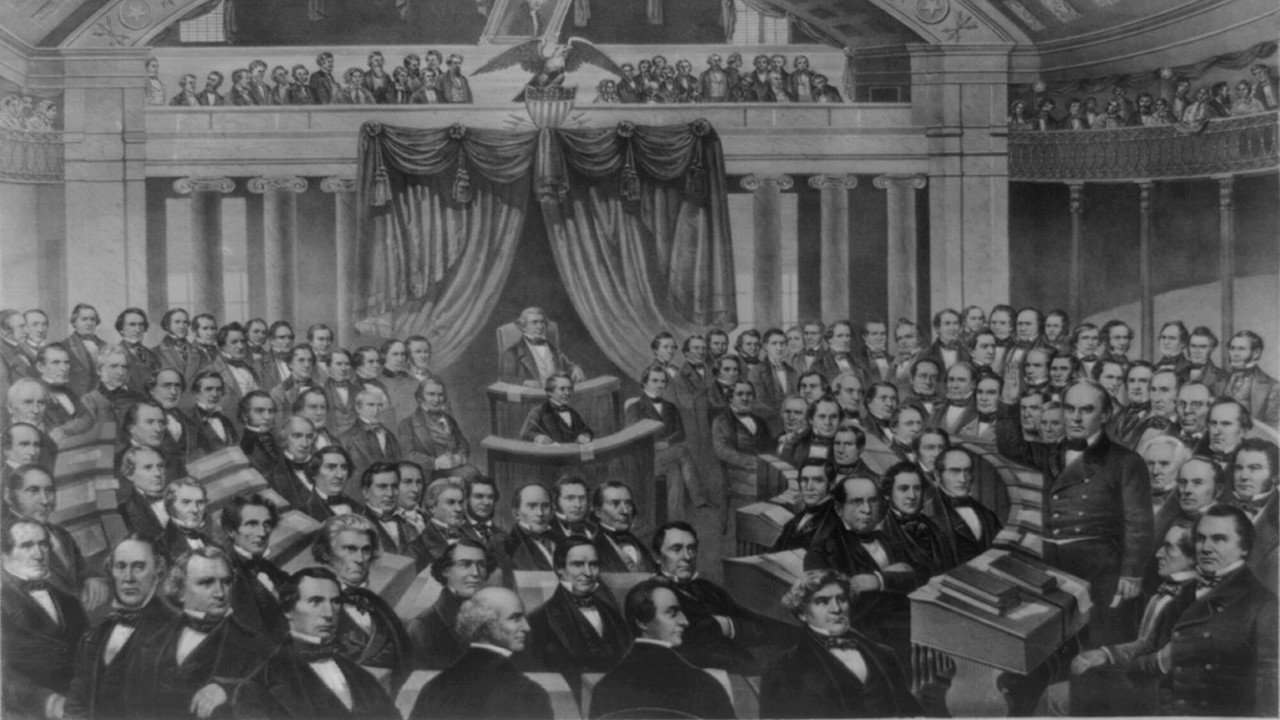Washington Post investigation takes a look at the 1,700 congressmen who owned slaves and their impact on America
Detroit Today January 12, 2022Reporter Julie Weil explains the messiness and complexity of slavery in American history.

Senator Daniel Webster speaking in the Old Senate Chamber about the Compromise of 1850.
Slavery is an integral part of the American story, and while slavery does not exist today, its history has shaped American institutions, government structures – even its culture, religions and music. On Monday, a new article by The Washington Post uncovered a disturbing fact that further elucidates this idea: That more than 1,700 congressmen once enslaved Black people. The article is meant to serve as an archive for researchers, historians and journalists to better educate the American public about the role of slavery in the U.S., according to the report’s authors.
These people have very complicated stories … people who had a lot of antislavery activities in their political careers even as they were keeping people in slavery in their own homes.” — Julie Z. Weil, Washington Post reporter
Listen: How the legacy of slavery has embedded itself in American institutions and culture.
Guest
Julie Z. Weil is a reporter with the Washington Post and one of the authors who contributed to the new investigation. Weil says readers are sending her emails about more documents related to American representatives who owned slaves. She also notes that those representatives were part of many different political parties and geographically, many different places, including northern and western states. Weil speaks of George Wallace Jones, a representative from Michigan and Wisconsin. “He was a slaveholder,” she says. “He was actually a college buddy with Jefferson Davis.”
Weil says many representatives who were publicly against slavery owned slaves themselves. “These people have very complicated stories … people who had a lot of antislavery activities in their political careers even as they were keeping people in slavery in their own homes,” she says.
Trusted, accurate, up-to-date.
WDET strives to make our journalism accessible to everyone. As a public media institution, we maintain our journalistic integrity through independent support from readers like you.
If you value WDET as your source of news, music and conversation, please make a gift today.

